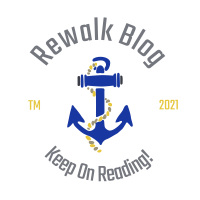Employment Credit Checks – What Are They?
Employment credit checks are an essential part of the job application process. However, before consenting to a credit check, here are some things to remember.
An Overview Of Your Borrowing History
A credit check for employment is an overview of your borrowing history, a standard part of the employment process. These reports detail how you have borrowed and paid back debts, including mortgage debt, student loans, and car loans. They also reveal bankruptcy history. Employers may use this information to ensure they hire the best employees for sensitive roles, such as handling large sums of money.
Although employment credit checks are not credit score-lowering, they can still affect your employment prospects. As a result, it is vital to manage your finances carefully. Most companies perform credit checks on prospective employees before extending job offers and after making a request.
An Indication Of Financial Irresponsibility
Credit checks can reveal some important aspects of an applicant’s financial history. Employers run these reports to ensure that job applicant can manage their finances. They also want to ensure they are not hiring someone with a history of missed car payments. An applicant should be given a fair chance to explain any negative information.
Many federal agencies require employment credit checks when hiring people for federal jobs. These checks are intended to identify intentionally financially irresponsible individuals and disqualify those with bad credit. However, the practice can harm the applicant’s chances of landing a job. Therefore, the federal government should stop using employment credit checks for employment purposes and require credit reporting agencies to improve their accuracy.
An Overview Of Your Payment History
Employment credit checks are used to evaluate a candidate’s payment history. They can reveal bad debt and past-due bills. They also reveal a person’s credit utilization rate. It will also be on your report if you’ve filed for bankruptcy. Whether you’re applying for a sensitive role or a position handling proprietary information, an employment credit check is a necessary step.
A credit check contains everything reported to the three major credit bureaus, including your payment history. This includes loans and credit cards, showing account balances and credit utilization percentages. Past-due accounts and late payments will also be listed.
An Indication Of Late Payments
A history of late payments on employment credit checks can reflect an individual’s lack of financial responsibility, which could lead to negative consequences in the workplace. The employer may assume that the applicant will not be able to meet their obligations and may not hire them. A pattern of late payments can also signal an inability to budget appropriately and meet deadlines.
Rights Of An Employee
The law, known as the Stop Credit Discrimination in Employment Act, was enacted after a multi-year campaign by advocates of fair employment practices. This coalition of concerned New Yorkers met with city officials and published op-eds and fliers. Initially, the legislation contained only one exemption, allowing employers to run employment credit checks if the law required.
While the federal Fair Credit Reporting Act (FCRA) allows employers to consider credit reports in hiring decisions, some states have laws restricting or prohibiting such checks.

